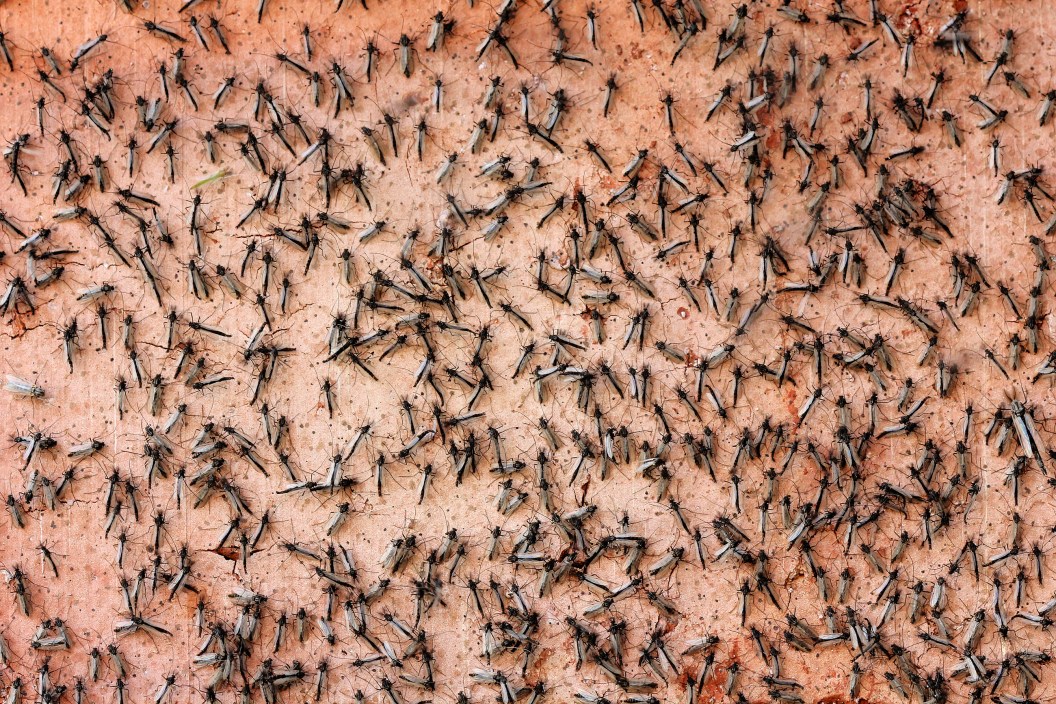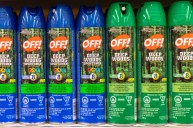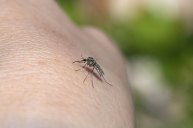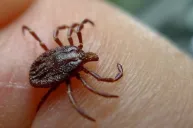For the first time in 20 years, malaria has been contracted in the U.S.: Five cases of locally-acquired malaria have been reported in Florida (four patients) and Texas (one patient) in the last two months, according to a recent announcement from the Centers for Disease Control and Prevention (CDC).
Considering the disease can be deadly and this summer's rain and heat is bringing more mosquitoes out than ever—should we be worried?
How Did This Happen?
Well, for starters, we always have malaria-carrying mosquitoes (Anopheles mosquitoes) in the U.S.—we just don't have an abundance of malaria itself for the species to spread it, explains tropical disease expert Michael Zimring, M.D., director of The Center for Wilderness and Travel Medicine at Mercy Medical Center in Baltimore, MD.
In all likelihood, the recent locally-acquired cases mean someone went to a high-risk location like Africa or South America, contracted the parasite, came back to the States, and then got bit by a healthy Anopheles mosquito who went on to transfer it to these five people in Florida and Texas, Dr. Zimring explains.
Are We At Risk?
The risk of you catching malaria, even if you're in Florida or Texas, is extremely low, says both Dr. Zimring as well as the CDC.
"There isn't enough of a reservoir of infected mosquitoes here for this to become widespread at this moment," Dr. Zimring reassures.
However, as temperatures increase year after year alongside more rain and floods, mosquitoes will become a bigger and bigger problem—and potentially malaria-infected mosquitoes, too, he adds.
While malaria can be deadly, we at least have preventative medicine as well as very effective treatments for it.
How to Protect Yourself
Even if you very likely won't catch malaria outdoors right now, you should still do everything to protect yourself from getting bitten by the pests.
"People have to realize mosquitoes, ticks, and bugs carry other diseases too—many of which there is no medicine for, like Dengue fever and Lyme disease. So it's important to protect yourself, regardless of malaria risk," Dr. Zimring says.
If you spend time outside in the woods, here's what you should do:
1. Rub your exposed skin with a bug-repellent lotion.
This repels mosquitoes and other insects so they aren't inclined to bite you. A 20% DEET Premium Controlled-Release Lotion will work well against mosquitoes, but Dr. Zimring says he prefers the 20% Picaridin lotion since it also protects against ticks, gnats, chiggers, and flies. (In both instances, he recommends Sawyer brand.)
READ MORE: Insect Repellent: The Secrets That Help Shield You From Bugs
Both the Picaridin and DEET lotions last roughly 8-12 hours, but it's not waterproof. Dr. Zimring recommends applying it in the morning after your sunscreen, and again at dusk when mosquitoes come back out, as well as anytime you go swimming or get wet.
2. Spray your clothes with Permethrin.
"If anyone hangs out outside, in the woods, they should spray all their clothes with Permethrin, which is an insecticide that causes the mosquito to die after they go through it," Dr. Zimring says.
The chemical is safe for fabrics and typically lasts about 4-6 weeks, or 4-6 washings.
3. Clean any standing water around your house.
Mosquitoes love standing water and, considering we've been seeing a whole lot of rain already this summer, there are a lot of breeding grounds available to them right now.
Check for pools of water in clogged gutters, bird ponds, and yards with bad drainage, or on sagging sunshades. All of these are breeding grounds for the buggers, Dr. Zimring points out, and invitations to bite the closest blood—usually you and your family.
READ MORE: Finally—Scientists Know Why Mosquitoes Like Certain People More




